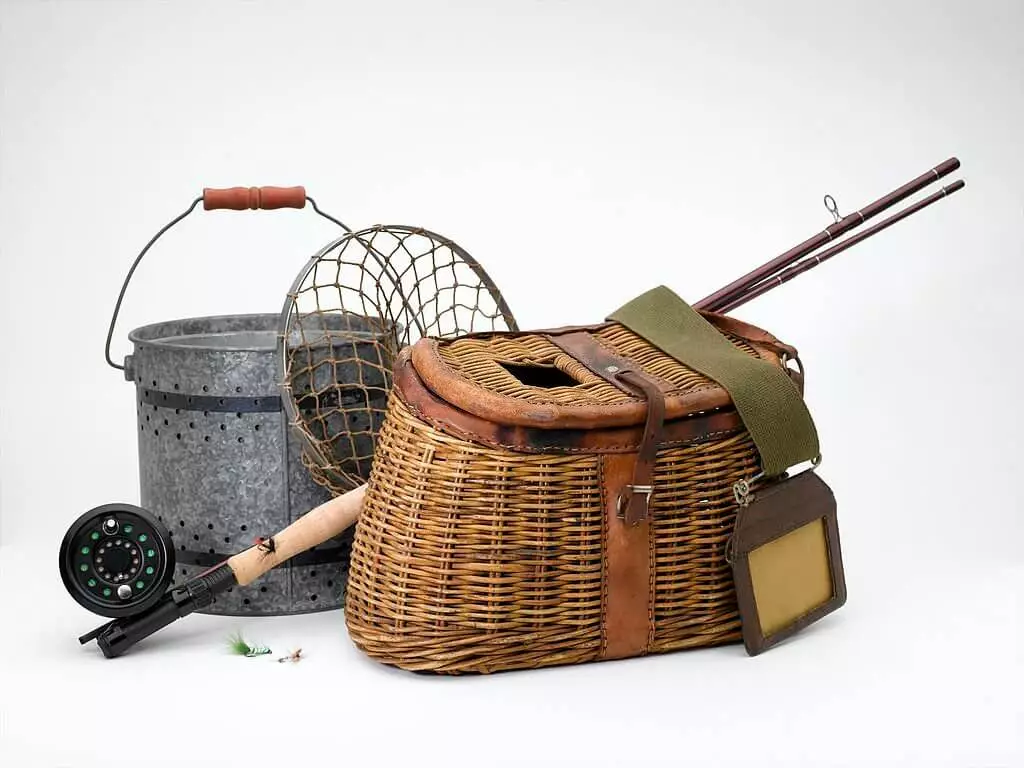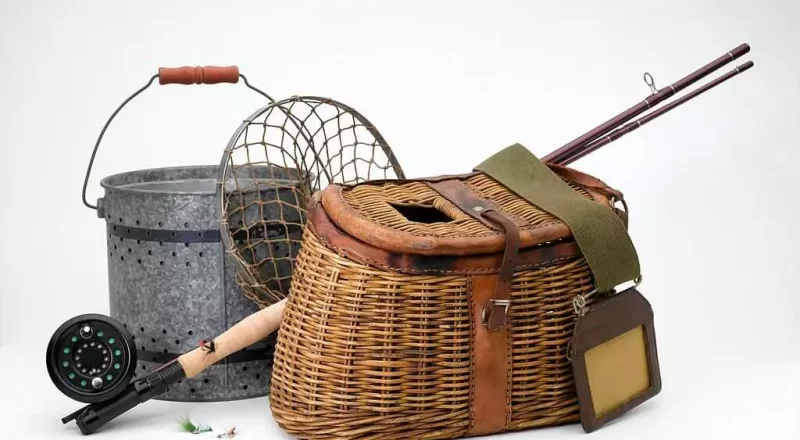If you’re a fishing lover, it’s crucial to have the right gear for freshwater fishing. Whether you’re fishing in a river, stream, or lake, having the right equipment can make a difference. This blog post will discuss some of the basics of freshwater fishing gear and what you need to get started. We’ll also provide some tips on how to select the right gear for your needs. So if you’re ready to try your hand at freshwater fishing, read on!
There are many things to consider when buying best freshwater fishing gear. First, you’ll want to make sure your equipment is appropriate for the type of water that you’re fishing.

I have prepared a list of gear essentials for freshwater fishing, including rods and reels, tackle, line, and other accessories. Let’s take a look at each one in more detail:
Fishing rods
The most important piece of fishing gear is the rod. There are many different types of rods available on the market, so it’s essential to select one that’s appropriate for the type of fish you’re targeting. For example, if you’re planning on catching smaller fish, you’ll want a lighter rod. Conversely, you’ll need a heavier rod if you’re targeting larger fish.
There are also different types of fishing rods available, such as baitcasting rods and spinning rods. Baitcasting rods are typically used for larger fish while spinning rods are better suited for smaller fish.
Fishing reels
In addition to a rod, you’ll also need a reel. There are two main types of fishing reels: baitcasting reels and spinning reels. Baitcasting reels are typically used for larger fish while spinning reels are better suited for smaller fish.
When selecting a fishing reel, it’s important to consider factors such as line capacity and drag system. For example, when fishing in deep water, you’ll need a reel with a high line capacity to easily retrieve your fish. If you’re targeting larger fish, look for fishing reels with a robust drag system to prevent the fish from breaking your line.
Fishing lines
Fishing lines come in a variety of weights, thicknesses, and lengths. The type of fishing line you’ll need will depend on the type of fish you’re targeting. For example, if you’re fishing for smaller fish, you’ll want to use a lighter line. Conversely, if you’re fishing for larger fish, you’ll need a heavier line.
There are also different types of fishing lines available, such as monofilament and braided lines. Monofilament lines are softer and more flexible than braided lines, while the braid is stronger and resistant to abrasion. When choosing between these fishing lines, it’s essential to consider the type of fish you’re targeting and your fishing conditions.
Fishing lures
Fishing lures are used to attract fish to your line. There are many different types of fishing lures available on the market, so it’s important to select one that’s appropriate for the type of fish you’re targeting. For example, if you’re fishing for smaller fish, you might want to use lures that resemble small insects or other small prey items. On the other hand, if you’re targeting larger fish, you’ll likely want to use a lure that resembles their natural prey.
In addition to selecting an appropriate lure, it’s also important to consider factors such as weight, action, and color. The weight of the lure will help keep your line at a reasonable depth in the water, while the action and color can be used to attract different types of fish. So when choosing fishing lures, be sure to do your research and experiment until you find one that works best for your needs.
If you’re starting fishing in freshwater, it’s essential to have the right gear and equipment. By selecting high-quality rods, reels, lines, and lures, you can ensure that you’ll be able to catch more fish and have a more enjoyable experience overall. So if you’re ready to get started, be sure to check out the selection of freshwater fishing gear at your local sporting goods store.
Tackle boxes
Tackle boxes are an essential piece of fishing gear, as they provide a convenient way to store and transport your tackle. When selecting a tackle box, it’s essential to consider the size and type of tackle you’ll be using. For example, if you’re planning on using a lot of smaller lures, you’ll want a tackle box with plenty of compartments and trays. On the other hand, you’ll need a tackle box with more space if you’re using larger lures or bait.
In addition to size and compartments, it’s also important to consider the materials used to construct the tackle box. For example, plastic tackle boxes are generally more durable and easier to clean than their wooden counterparts. However, wooden tackle boxes often offer more storage space and can be customized to suit your needs better.
Fishing nets
Fishing nets help land fish that are too large to be pulled in by hand. When selecting a fishing net, it’s important to consider the size and type of fish you’re targeting. For example, if you’re fishing for smaller fish, you’ll need a smaller net. Conversely, you’ll need a more extensive net targeting larger fish.
In addition to size, it’s also essential to consider the material used in the construction of the net. For example, nylon nets are typically more durable and easier to clean than polyester nets. However, polyester nets often offer more stretch and are less likely to tear.
Fishing waders
Waders are clothing worn by fishers that extend from the feet up to the chest or waist. They’re made from various materials, including breathable fabrics such as Gore-Tex. When selecting fishing waders, it’s essential to consider factors such as comfort and durability. For example, if you’ll be spending a lot of time in the water, you’ll want to opt for a pair of waders that are very comfortable and will keep you warm on long days out.
In addition to comfort and durability, it’s also important to consider the size of the waders. For example, if you’ll only be fishing in shallow water or moderate temperatures, you may be able to get away with a pair of lightweight waders. On the other hand, if you’re planning on spending a lot of time fishing in deep water or cold weather, you’ll need a heavier pair of waders.
Conclusion
Fishing gear is an integral part of the fishing experience. Different pieces of gear can make your time on the water more successful, or they can ruin your day. In this post, we’ve outlined some of the most important pieces of gear for anglers and shared our top picks for each category. Whether you are a beginner or an experienced fisherman, these recommendations will help you get ready to hit the water. Do you have any questions about choosing fishing gear? Let us know in the comments below!

Joey is your friendly neighborhood knowledge seeker. From science to history, he’s on a quest to unravel the mysteries of the universe and share his discoveries with you. Dive into his articles for a dose of curiosity and wonder.










